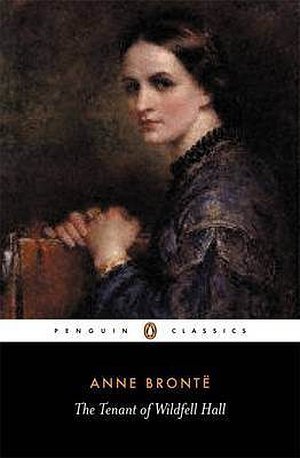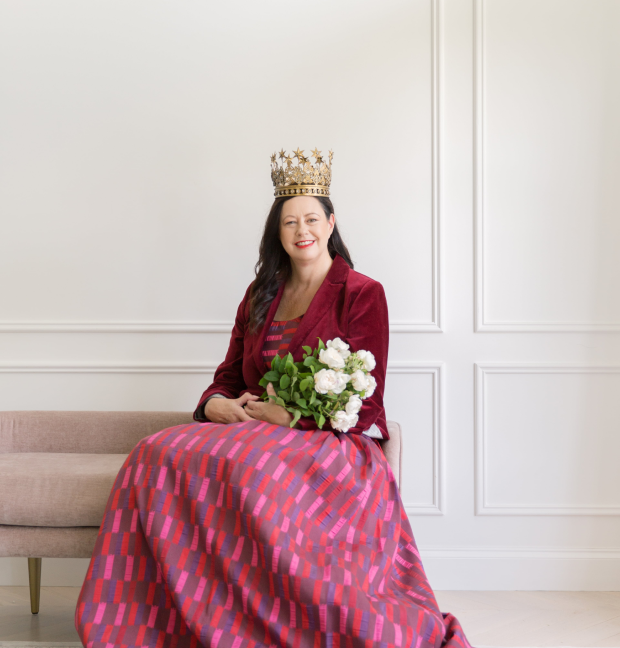
The Blurb (from Goodreads):
This is the story of a woman's struggle for independence. Helen "Graham" has returned to Wildfell Hall in flight from a disastrous marriage. Exiled to the desolate moorland mansion, she adopts an assumed name and earns her living as a painter.
My Thoughts:
I first read The Tenant of Wildfell Hall when I was in my late teens and discovering the lives and work of the Bronte sisters. It came third in my esteem, after Jane Eyre and Wuthering Heights. For some reason, I have never re-read it, even though I’ve re-visited the work of her sisters many times. It might have been because I remembered it as being rather gloomy, with a pious self-righteous heroine and an unlikeable hero.
Talking the book over with a friend last year, she said that she thought it was one of the earliest examples of feminist fiction. I decided I had to read it again and I’m very glad I did.
Basically, the story begins with Gilbert Markham, an affable but rather shallow and impetuous young man, taking an interest in a beautiful but secretive widow who comes to live in Wildfell Hall with her young son. Helen supports herself with her painting and has very decided views on alcohol and other social problems. Gilbert talks with her and finds himself admiring her steadfastness and intelligence, in stark contrast to Eliza, the pretty but silly girl he had been courting previously. As his fascination with Helen grows, so does his curiosity about her past. But Helen guards her secrets closely. He asks her to marry him, and she refuses – but gives him her diaries to read.
The narrative then switches to Helen’s point-of-view. Headstrong and passionate, she falls in love with a handsome, charming young man and marries him, despite her family’s reservations. He rushes headlong into dissolution, however, spending long months drinking and carousing in London, then bringing his debauched friends back to spend months at their estate. He embarks on an affair with one of his friends’ wives and mocks Helen’s sense of betrayal and pain. After he begins to teach his young son to drink and smoke and swear, Helen finds the strength and courage to leave him. She takes refuge at Wildfell Hall and lives in dread of her vindictive husband finding her.
The third section returns to Gilbert’s point-of-view. He is no longer the shallow, pleasure-loving character of the first part of the book. He has been transformed by his love for Helen into someone much deeper and more thoughtful. He agrees that he and Helen must not see each other again, as she is not free to marry and does not wish to be tempted into being unfaithful to her wedding vows. Helen returns to nurse her dying husband, and Gilbert is filled with anguish and grief. After her husband dies, he stands by his vow not to contact her but then hears rumours that she is to be married again. So he rushes to the church to try and stop the wedding. In the end, the two are reunited again and find happiness.
The Tenant of Wildfell Hall was an astonishingly brave novel for a young woman to write in the early part of the 19th century. It’s a story about marital abuse, and Helen’s courageous action in leaving her husband would have been thought utterly shocking at the time. One of the biographers of the Brontës, May Sinclair, wrote “the slamming of Helen Huntingdon’s bedroom door against her husband reverberated through Victorian England.”
It is also a story about a woman who stood up for what she believed in, and who supported herself with her art. This was surely the unspoken dream of many young women bound within their society’s narrow view of a woman’s role in the world.
Finally, The Tenant of Wildfell Hall does not flinch away from depicting alcoholism, adultery, domestic violence, or attempted rape. It is clear-eyed and unflinching in its depiction of the realities of 19th century English life.
Most interestingly, for me, is the transformation of the character of Gilbert. In the first half of the book, he is confident to the point of cocky, and thinks nothing of toying with Eliza’s feelings, or of pressing his unwanted attentions upon Helen. He calls on her uninvited, he seizes her hand and tries to kiss it, he tries to pry into her past. His behaviour foreshadows the actions of Helen’s husband Arthur, who treats her with rough passion that escalates to violence, and his friend Walter, who tries to first seduce, then rape, Helen.
However, Gilbert changes once he has heard Helen’s story and understands how she has been abused in the past. He becomes more grave and gentler. Most interestingly, he swears to leave her be until she is ready for anything else. He does not write to her or hound her; he gives her the time she needs.
By the time they are at last united, he too has suffered from his long enforced separation from Helen and is far more worthy of her love. And the final scenes – when Gilbert races to stop her marriage to another – are compelling, page-turning drama.
I do have one small caveat about my new-found love and admiration of Anne Brontë – I’m afraid I skim-read most of the long speeches about piety and morality. I suspect they are why so many contemporary readers dislike the book!

